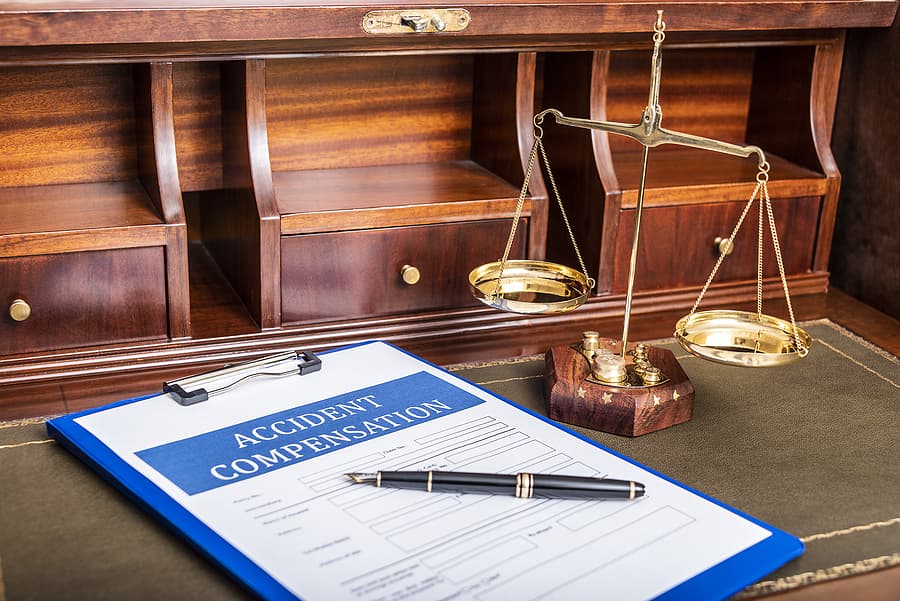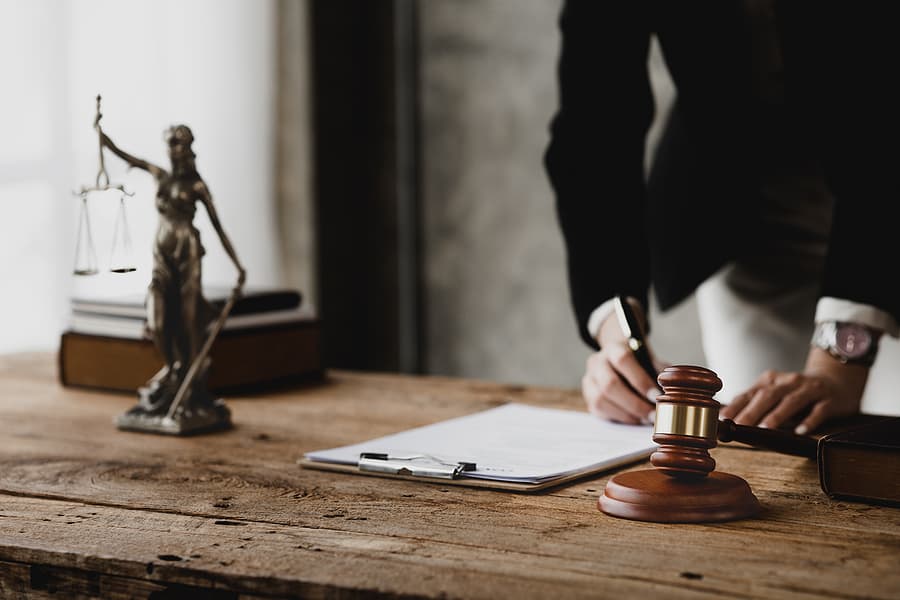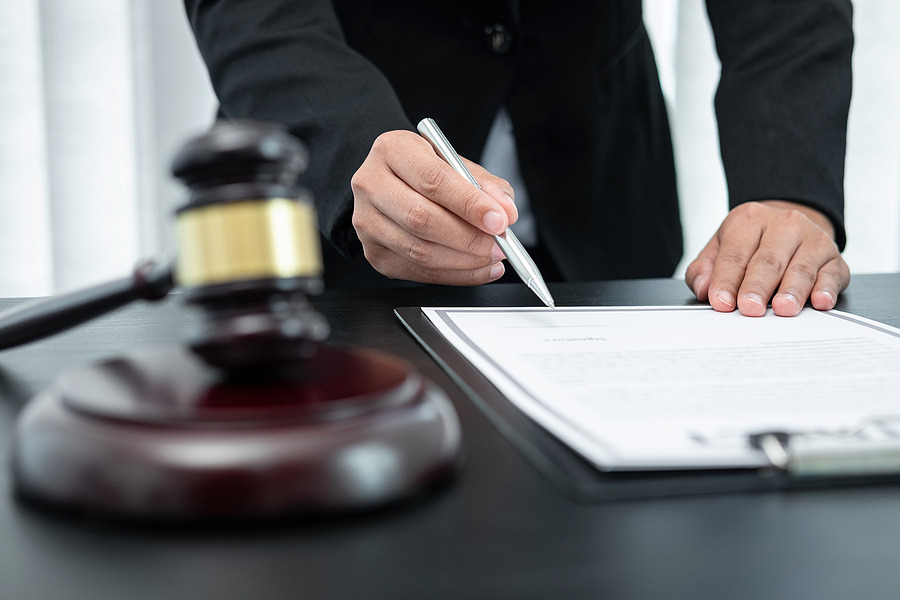Wondering whether you need a personal injury lawyer? Personal injury lawyers represent people who have been injured or suffer illness or other harm because of the wrongful actions of another person, organization, or company. If someone else’s careless, reckless, or intentional actions caused you to suffer harm, a personal injury lawyer can help.
Negligence and Personal Injury
Negligence is the key to understanding personal injury law. Negligence means that the person or organization that harmed you owed you a duty of care and violated that duty of care. The at-fault person may have actively done something wrong or failed to do something that they should have done.
By way of example, let’s say a car driver going 40 miles per hour in a 25-mile-per-hour zone hits you on your bike. You suffer multiple fractures, including both legs. Clearly, you have an injury. You experience pain and fear as well. Not only that, but the treatment and healing process may take multiple rounds of doctor’s appointments, hospitalizations, and perhaps even surgeries. You may need physical therapy after the broken bones heal. All of this medical care results in substantial bills piling up. You may miss work and be unable to do things around the house or organize family activities while you are healing. It is clear that you suffered injuries and harm.
It also seems as if the accident stems from negligence. Car drivers have a duty to drive as carefully as a reasonable person would under the same circumstances. This duty includes following posted speed limits and obeying other traffic safety laws. It also encompasses keeping watch of the surroundings so that you can avoid any pedestrians or people riding bicycles. The driver in this scenario breached those duties of care.
One more crucial piece is needed to prove negligence. The negligent action must directly cause the injuries; they cannot stem from another source. Let’s say an insurance company, for instance, tries to argue that your broken bones happened earlier when you slipped on some ice. If this was the case, the driver would not bear responsibility for the injuries because the driver ultimately didn’t cause them.
A negligent driver breaches their duty of care and injures others. That makes the driver liable (or financially responsible) for the injuries that were caused by their negligence. Injured people can thus receive financial compensation from negligent parties. Often, this compensation comes in part or entirely from an insurance company due to a policy held by the negligent party.
What Types of Events Cause Personal Injury?

Many types of events cause personal injury, including:
- All types of vehicle accidents (car, truck, motorcycle, bicycle, pedestrian)
- Boat and watercraft accidents
- Aviation and small craft accidents
Hazardous conditions on land or in a building owned by someone else - Injuries caused by poorly designed or improperly manufactured products
- Drowning accidents
- Injuries caused by an intoxicated person who was served alcohol after they were visibly intoxicated by a restaurant, bar, or other alcohol seller
- Dog attacks
- Explosions and burns
- Medical malpractice
- Pharmacy malpractice
- Defective medical implants
- Construction site accidents
- Workplace accidents
As you can see, injuries caused by negligence can occur in a variety of ways. The experienced personal injury attorneys at Gruel Mills can help if you or a loved one has been injured, whatever the cause.
What Compensation Can I Seek for My Injuries?
If you have been injured due to someone else’s negligence, you can seek economic compensation. It may be possible to settle your claim out of court, or you may need to file a lawsuit to get just compensation.
You can seek compensation in the following categories.
- Medical bills already incurred – For emergency services (ambulances and emergency department care), hospitalization, surgery, doctor’s office visits, medical care, diagnostic tests, physical therapy, prescription medication, medical devices, retrofitting a home to accommodate mobility limitations, and more
- Future medical bills – In all of the above categories.
- Wages lost from work – For work lost due to the injury-causing accident itself, medical treatment, and recovery time.
- Property damage – For property damaged or destroyed in the injury-causing accident, such as a vehicle.Pain and suffering – For physical, emotional, and psychological pain and suffering.
What About Car Accidents?
Michigan is a no-fault state for car accidents. This means that injured people generally turn to their own insurance companies for payment of some or all medical bills and limited wages lost from being unable to work. These are called personal injury protection (PIP) benefits, and are available to anyone injured in a crash involving a car, regardless of who was at fault. PIP benefits do not cover non-economic damages, such as pain and suffering.
The law does provide, however, that seriously injured people can step outside of the no-fault system. If your injuries allow this, you can seek damages for things not covered by your PIP insurance and compensation for non-economic harm such as pain and suffering.
Can I Seek Compensation If a Loved One Dies from Injuries?
Yes, family members can seek compensation if a loved one dies as a result of injuries or illness caused by a negligent party. The executor of the deceased’s estate can file a wrongful death lawsuit.
Compensation in wrongful death suits includes:
- Funeral and burial expenses
- Reasonable hospital and medical expenses incurred before the death
- Loss of financial support the deceased person provided to others
- Loss of the deceased’s care and companionship to their family members
- The deceased’s pain and suffering experienced before their death
Under Michigan law, the decedent’s spouse, children, other descendants, parents, grandparents, and siblings may receive damages from a wrongful death suit. If the deceased’s spouse has surviving children, they may also receive damages. Finally, the law allows anyone designated in the decedent’s will to receive damages as well.
When Should I Bring a Legal Claim for Personal Injury?
The statute of limitations in Michigan for personal injury and wrongful death is three years from the injury or death. The statute of limitations refers to the deadline to bring a civil suit, after which the court will not hear the case.
But bear in mind that any successful personal injury case needs evidence: evidence of what or who caused the injury-causing incident, evidence of the connection between the negligent actions and your injuries, and evidence of the harm your injuries has caused. The more time goes by, the harder it may be to gather evidence. Eyewitnesses can forget or move out of state. Physical evidence is lost or destroyed.
If you need to file a legal claim for personal injury, it is best to consult a lawyer as soon as possible after the injury. The personal injury lawyers at Gruel Mills offer
free consultations for the initial discussion about a case. This conversation just helps you understand your options; it does not obligate you to do anything.
What Evidence Do I Need?
All legal cases rely on evidence. The evidence in personal injury cases may vary, depending on what caused the injury.
Common evidence includes:
- Police reports of an accident
- Pictures or videos of an accident
- Surveillance video showing an accident or incident
- Eyewitness testimony
- Medical records of diagnosis and treatment
- Pictures or videos of injuries
Don’t worry if you don’t have this evidence. A lawyer can help you gather existing evidence, such as police reports and medical records. Lawyers also work with investigators who can track down evidence like potential eyewitnesses and surveillance footage, say from a retail store camera overlooking an accident scene.
At times, lawyers consult with experts, whose testimony based on their expertise can serve as evidence. In medical malpractice cases, other doctors can testify as to whether the defendant doctor provided appropriate care. In car crash cases, an accident reconstructionist can perform measurements and calculations that reveal how an accident happened. In construction site or workplace injuries, an expert regarding the operation of a complex piece of machinery may testify as to the cause of an incident. Personal injury lawyers know how to identify what type of testimony will be helpful to your claim and find an accomplished expert to testify on your behalf.
Filing Claims With Insurance Companies: The Art of Negotiation
In a perfect world, injured people could file claims with their own insurance company and the negligent party’s insurance company, and they would receive just compensation for their injuries. However, there are many reasons why that doesn’t happen.
An insurance company may simply be stingy, given that they are in the business of making money, or they may actively deploy strategies to deny or minimize your claim. The adjuster may receive slanted or outright wrong information from the negligent driver and, based on that wrong information, claim that their insured didn’t cause the accident. They may try to blame the crash on you or another person or another event entirely. The insurance company may claim that you aren’t as severely injured as you claim, or that your injuries were caused by something else and predated the crash. Or they may offer you a settlement that represents only a fraction of your damages, hoping that you will take it without realizing that you are entitled to more.
Countering all these strategies takes time, energy, and evidence. When you are injured, stressed, and in pain, gathering evidence and proving what really happened can be taxing. Insurance companies know that you may find negotiating with them difficult. That’s why they do their best to make it as difficult as possible.
Always ask a lawyer to negotiate with the insurance company. Lawyers understand the strategies insurance companies use. Lawyers can put a fair dollar figure on your injuries and the effect they’ve had on your life. Lawyers know what offers are too low and when you should receive more. Lawyers negotiate for a living, and they can negotiate a fair settlement from the insurance company.
Insurance companies are one of the prime reasons you need a personal injury lawyer. Lawyers, of course, can always take a case to trial if the insurance company will not settle fairly. The threat of a court case is often enough to nudge a settlement forward.
What Should I Bring to an Initial Consultation With a Personal Injury Lawyer?
An initial consultation allows you to discuss your case and its impact on your life. The attorney will advise you on the outlook of your case and possible recovery. To do so, the attorney needs to know the facts and the evidence that may be available.
It’s a good idea to bring any evidence you have regarding what happened, who or what caused the event, your injuries, their severity and extent, and the impacts on your life. Walk the lawyer through the injury-causing event, and they’ll have a much better idea of how you should move forward. If you can get your accident report from the police prior to your meeting, it will be helpful for your attorney. Reach out to a personal injury lawyer.
You should also bring all of the medical records you have regarding your injuries. It is helpful to write down all of the ways that your injuries have impacted your life and the activities you can no longer do because of pain and functional limitations. Photographs of your injuries, medical devices, and healing process are likewise helpful.



